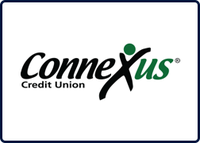The best credit unions of 2025

Key takeaways
- Credit unions often offer high rates and low (or no) fees on deposit accounts, along with personalized service and community involvement.
- While credit unions often have eligibility requirements based on your geographic location or profession, many make it easy for anyone to join by making a small deposit or donation.
- Many credit unions provide highly rated mobile apps as well as access to a large network of shared branches and fee-free ATMs.
Credit unions, which are non-for-profit organizations, often stand out for having competitive account yields, community focus and personalized service. Bankrate analyzed and scored credit unions across the nation based on a variety of factors including product selection, annual percentage yield (APY) offerings, account fees and mobile features. The credit unions included on our list of best credit unions offer perks such as high APYs, no monthly fees or minimum balance requirements and all carry deposit insurance through the National Credit Union Association (NCUA).
Bankrate’s picks for the best credit unions of 2025

Alliant Credit Union
-
Chicago-based Alliant Credit Union is known for its consistently elevated rates, extensive fee-free ATM network and easy membership eligibility requirements that make it so that anyone can join. Alliant’s mobile app comes highly rated, and its savings account includes a helpful perk: customers can open up to 19 supplemental accounts (which all earn the same APY), making it easier to organize your funds and save for multiple goals.

America First Credit Union
-
Membership in America First Credit Union is a strong choice for those looking for high CD rates but you have to live in the Western U.S., since this credit union is only open to those who live or work in select areas of Idaho, Arizona, Utah, New Mexico, Nevada and Oregon. It offers nearly 115 branches, and accounts can also be opened online, combining local presence with convenience. Its mobile app includes a helpful feature: it allows you to see a full picture of your finances by linking accounts from other financial institutions.

American Airlines Federal Credit Union
-
If you or a family member is an active or retired member of the airline industry, you’re eligible to join American Airlines Federal Credit Union (AAFCU). It offers branches in many major airports, as well as more than 5,000 Co-op shared branches through other credit unions. Its full suite of products includes CDs, checking, savings accounts, credit cards and loans, making it a comprehensive banking option for aviation professionals and their families.

Boeing Employees’ Credit Union
-
Boeing Employees’ Credit Union (BECU) is one of the largest credit unions in the United States and is known for its low-cost, member-first approach. Among those eligible for membership are Boeing employees and people who live or work in Washington or parts of Idaho and Oregon. Most BECU accounts require no or low minimum deposit requirements, although higher rates can often be found elsewhere.

Connexus Credit Union
-
Based in Wausau, Wisconsin, Connexus Credit Union earns a top spot for its nationwide availability, broad ATM access and a wide array of deposit account options. Members can make transactions at more than 5,000 shared branches run by other credit unions in addition to 15 of Connexus’ own branches, and they have free access to more than 67,000 ATMs. Connexus offers a full range of accounts, including free and interest-bearing checking accounts, making it a solid fit for diverse financial needs.

Mountain America Credit Union
-
Founded in the 1930s, Mountain America Credit Union is one of the largest credit unions in the U.S. and operates more than 100 branches in the Western U.S. It offers deposit accounts for consumers and businesses, as well as loans and wealth management services, loans and insurance policies.
The credit union has great rates on CDs, you’ll likely find higher yields on a regular savings account elsewhere. To join, though, you’ll need to live in one of four Utah counties, be a family member of an existing member, live with an existing member or be an employee/volunteer of certain employee groups or associations.

Patelco Credit Union
-
Patelco Credit Union shines for its strong digital tools and fee-free ATM access. Patelco Credit Union has more than 500,000 members, and membership is open to those who live in northern California, as well as employees of more than 1,100 businesses nationwide. It offers a large shared branch network of more than 6,000 locations, more than 30,000 fee-free ATMs and a highly rated mobile app.

Quorum Federal Credit Union
-
While Quorum is a Purchase, New York-based credit union, it offers accounts nationwide, serving more than 65,000 members. It’s easy for anyone to become a member — you just need to become a member of the American Consumer Council, which is free (and you can do this during the Quorum membership application process). Quorum offers access to more than 90,000 fee-free ATMs throughout the U.S., making it not only easy to open an account, but also to manage your money anywhere. The mobile app comes highly rated, which can make your digital banking life easier, and QPlus checking account holders can receive early access to direct deposit.

Randolph-Brooks Federal Credit Union
-
With over 1 million members, Randolph-Brooks Credit Union (RBFCU) is one of the largest credit unions in Texas. Membership is mainly open to those who live, work, volunteer or attend church or school in parts of Texas with some other ways to qualify as well. You can open an account online or at one of RBFCU’s branches, which are located in Texas. RBFCU could be a good option for those in the Texas area looking for simple, low-barrier entry to full-service banking.

Security Service Credit Union
-
Its blend of military-friendly eligibility, local presence and approachable entry requirements may make Security Service Federal Credit Union (SSFCU) a good option for those seeking regional coverage and unique perks including telehealth access and identity theft reimbursement. Membership in SSFCU is open to those who live or have certain affiliations in Colorado, Texas or Utah. Those with a connection to select military bases are also eligible to join.

Suncoast Credit Union
-
Suncoast Credit Union combines a community focus with digital accessibility and is open to those who live, work or worship in select Florida counties. The credit union operates around 80 branches, and accounts can also be opened online. Its mobile app allows you to send money to family and friends, deposit checks and locate ATMs and branches. With these digital offerings, Suncoast offers a strong mix of local service and modern banking features.
What’s the difference between credit unions and banks?
Both banks and credit unions commonly offer deposit accounts such as savings, checking and money market accounts. However, the main difference between the two is that banks are for-profit institutions, whereas credit unions are not-for-profit and distribute profits among their members — often in the form of higher yields on accounts.
Another difference is banks typically allow anyone to apply for accounts, while credit unions often restrict membership to requirements such as geographical area or industry.
You’ll likely have to open a savings account at a credit union to become a member (even if you only want a checking account). A savings account establishes your ownership stake in the credit union and therefore establishes your membership. From there, you’re free to open the credit union’s other accounts.
Pros and cons of credit unions

Pros
- Credit unions sometimes offer deposit account rates that are above national averages — and some even offer highly competitive yields.
- Service is often more personalized, since credit unions commonly have close ties to the communities they serve.
- Large credit unions commonly offer a full suite of products that can include deposit accounts, credit cards, mortgages and other loans.

Cons
- Some credit unions limit their membership based on where you live or work, of what industry you work in.
- Credit unions may have fewer branches than traditional banks, making them less convenient for those who prefer in-person banking.
- Smaller credit unions might not have the resources to offer a mobile app.
Credit unions offer several benefits, including lower interest rates on loans and credit cards, higher savings rates, and fewer fees compared to traditional banks. As member-owned, they often prioritize customer service and community involvement.— Christopher Stroup, CFP, founder and president of Silicon Beach Financial
A few credit union terms to know
If you decide to explore a credit union for your banking needs, you’ll need to know a couple of important terms credit unions use that are different from banks.
- Share certificate
-
The credit union term for certificates of deposit. They work the same way — just with a different name. (Learn more about share certificates versus CDs.)
- Dividends
-
Dividend is the credit union term for interest. The different name for interest simply reflects that you’re not just a member of a credit union, you’re also part owner.
Frequently asked questions (FAQs)
Bottom line
The best credit unions on Bankrate’s list offer a wide selection of accounts, APYs above the national average and usually have some other perks, such as expansive ATM networks. But the best credit union for you will be the one that meets your personal needs, whether that’s yields, branch accessibility, ATM availability or a mobile app offering.
Next steps
Research methodology
Bankrate researches over 100 banks and credit unions, including some of the largest financial institutions, online-only banks, regional banks and credit unions with both open and restrictive membership policies.
The credit unions on this page are selected based on their overall Bankrate star rating. Learn more about how we choose the best banking products and our methodology for reviewing banks.
Why we ask for feedback Your feedback helps us improve our content and services. It takes less than a minute to complete.
Your responses are anonymous and will only be used for improving our website.






